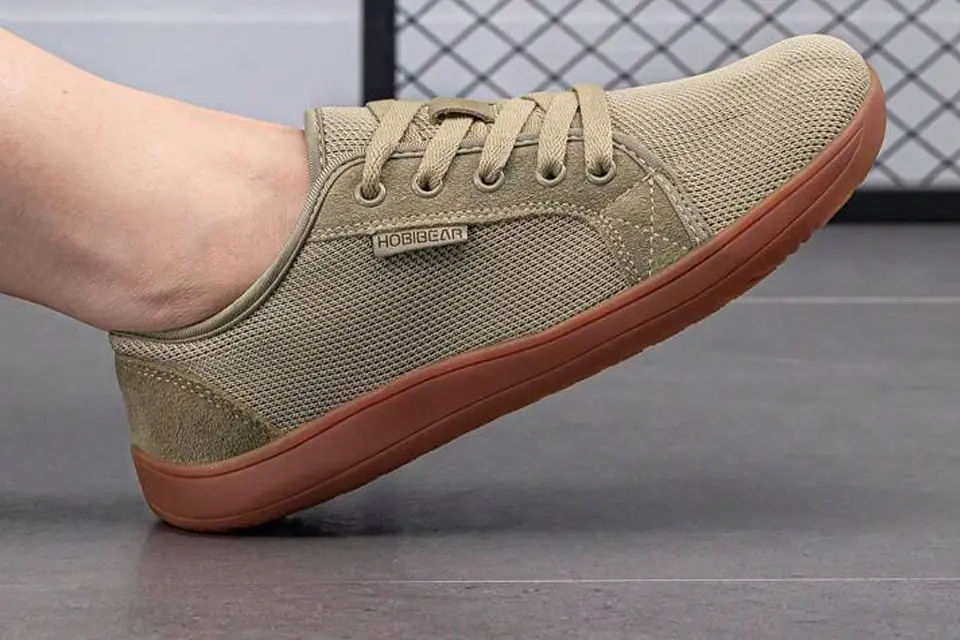
Can Barefoot Shoes Help Flat Feet
For people struggling with flat feet, finding the right footwear can be a challenging journey. In recent years, barefoot shoes have emerged as a potential solution, offering a minimalist approach that aims to strengthen foot muscles naturally. Let’s explore how these innovative shoes might benefit those with flat feet.

Table of Contents
Understanding Flat Feet and Their Impact
Flat feet, also known as fallen arches, occur when the arches of the feet collapse, causing the entire sole to make contact with the ground. This common condition affects millions of people worldwide and can lead to:
- Foot pain and fatigue
- Ankle instability
- Knee and hip discomfort
- Poor posture
- Balance issues
Traditional shoe designs often focus on arch support and cushioning, but this approach might not address the root cause of flat feet.
The Science Behind Barefoot Shoes
Minimalist barefoot shoes work differently from conventional footwear by:
- Allowing natural foot movement
- Promoting muscle engagement
- Enabling proper ground feedback
- Maintaining proper foot alignment
- Strengthening intrinsic foot muscles
How Barefoot Shoes Support Flat Feet Recovery
The transition to barefoot shoes can help strengthen flat feet through several mechanisms:
- Natural Arch Development
- Encourages muscle activation
- Promotes natural arch formation
- Supports proper foot mechanics
- Muscle Strengthening
- Engages intrinsic foot muscles
- Improves balance and stability
- Enhances proprioception
- Improved Foot Function
- Better weight distribution
- Enhanced sensory feedback
- Natural gait pattern
Key Features of Barefoot Shoes for Flat Feet
When choosing barefoot shoes for flat feet, look for these essential features:
- Wide toe box for natural toe spread
- Zero-drop heel for proper alignment
- Flexible sole for natural movement
- Lightweight construction
- Minimal cushioning
- Good ground feel
Making the Transition to Barefoot Shoes
A gradual transition is crucial for success:
- Start slowly with short wearing periods
- Gradually increase duration
- Listen to your body’s feedback
- Combine with foot strengthening exercises
- Be patient with the adaptation process
Exercises to Complement Barefoot Shoe Use
Combine barefoot shoes with these exercises:
- Toe spreads and grips
- Short foot exercises
- Calf raises
- Balance training
- Walking on varied surfaces
Benefits Beyond Flat Feet
Wearing barefoot shoes can provide additional advantages:
- Improved posture
- Better balance
- Enhanced proprioception
- Stronger leg muscles
- More natural movement patterns
Common Concerns and Solutions
Address these common worries:
| Concern | Solution |
|---|---|
| Initial discomfort | Gradual transition |
| Lack of cushioning | Progressive adaptation |
| Muscle soreness | Regular stretching |
| Transition time | Patient approach |
Scientific Evidence and Research
Studies have shown promising results:
“Research indicates that minimalist footwear can help strengthen foot muscles and improve arch function over time.” – Journal of Foot and Ankle Research
Choosing the Right Barefoot Shoes
Consider these factors when selecting barefoot shoes:
- Activity type
- Foot width
- Ground conditions
- Climate
- Personal comfort
Frequently Asked Questions
How long does it take to see improvements in flat feet with barefoot shoes?
Results vary by individual, but most people notice changes within 3-6 months of consistent use.
Are barefoot shoes suitable for everyone with flat feet?
While beneficial for many, consult a healthcare professional before making the switch, especially if you have severe flat feet or other foot conditions.
Can I wear barefoot shoes for all activities?
Yes, but start with walking and gradually progress to more demanding activities as your feet adapt.
Will my feet hurt when transitioning to barefoot shoes?
Some initial discomfort is normal as your feet adjust to the new movement patterns.
How often should I wear barefoot shoes?
Begin with 30-minute sessions and gradually increase as comfort allows.
Conclusion
Barefoot shoes can indeed help flat feet by promoting natural foot strength and function. While they’re not a magic solution, when combined with proper transition strategies and exercises, they can be an effective tool for improving foot health. Remember to approach the transition gradually and listen to your body’s feedback throughout the process.For those interested in exploring barefoot shoes for flat feet, consider checking out our collection of custom barefoot shoes designed to support natural foot function while providing comfort and style.
